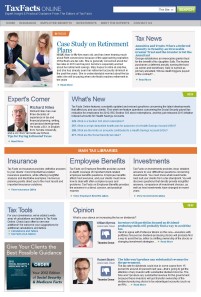On Monday July 1, the IRS released its new, short application form for small charities to apply for 501(c)(3) tax-exempt status. The new Form 1023-EZ is three pages long (instructions link is here), compared with the standard 26-page Form 1023.
As many as 70% of all charity applicants for tax exemption will qualify to use the new streamlined three page form. Most organizations with gross receipts of $50,000 or less and assets of $250,000 or less are eligible. The IRS created a Q&A worksheet to help an organization's representative determine if it can use the new 1042-EZ: link available here:
Question 1: Do you project that your annual gross receipts will exceed $50,000 in any of the next 3 years? (Gross receipts are the total amounts the organization received from all sources during its annual accounting period, without subtracting any costs or expenses. You should consider this year and the next two years.)
Question 2: Do you have total assets in excess of $250,000? (Total assets includes cash, accounts receivable, inventories, bonds and notes receivable, corporate stocks, loans receivable, other investments, depreciable and depletable assets, land, buildings, equipment, and any other assets.)
"Previously, all of these groups went through the same lengthy application process -- regardless of size," aid IRS Commissioner John Koskinen. "It didn't matter if you were a small soccer or gardening club or a major research organization. This process created needlessly long delays for groups, which didn’t help the groups, the taxpaying public or the IRS.”
The change will allow the IRS to speed the approval process for smaller groups and free up resources to review applications from larger, more complex organizations while reducing the application backlog. Currently, the IRS has more than 60,000 501(c)(3) applications in its backlog, with many of them pending for nine months. There are more than a million 501(c)(3) organizations recognized by the IRS.
The Form 1023-EZ must be filed using pay.gov, and a $400 user fee is due at the time the form is submitted. Further details on the new Form 1023-EZ application process can be found in Revenue Procedure 2014-40, posted today on IRS.gov.
For a history of US tax treatment of charity, please read http://papers.ssrn.com/sol3/papers.cfm?abstract_id=2304044 This article studies the American political debate on the charitable tax exemption from 1864 to 1969, in particular, the debate regarding philanthropic, private foundations.
“Robert Bloink, Esq., LL.M., and William H. Byrnes, Esq., LL.M., CWM®—are delivering real-life guidance based on decades of experience.” said Rick Kravitz. “The authors’ knowledge and experience in tax law and practice provides the expert guidance for National Underwriter to once again deliver a valuable resource for the financial advising community.”
Anyone interested can try Tax Facts on Individuals & Small Business, risk-free for 30 days, with a 100% guarantee of complete satisfaction. For more information, please go to www.nationalunderwriter.com/TaxFactsIndividuals or call 1-800-543-0874.
Authoritative and easy-to-use, 2014 Tax Facts on Insurance & Employee Benefits shows you how the tax law and regulations are relevant to your insurance, employee benefits, and financial planning practices. Often complex tax law and regulations are explained in clear, understandable language. Pertinent planning points are provided throughout.
2014 Tax Facts on Investments provides clear, concise answers to often complex tax questions concerning investments. 2014 expanded sections on Limitations on Loss Deductions, Charitable Gifts, Reverse Mortgages, and REITs.

No comments:
Post a Comment